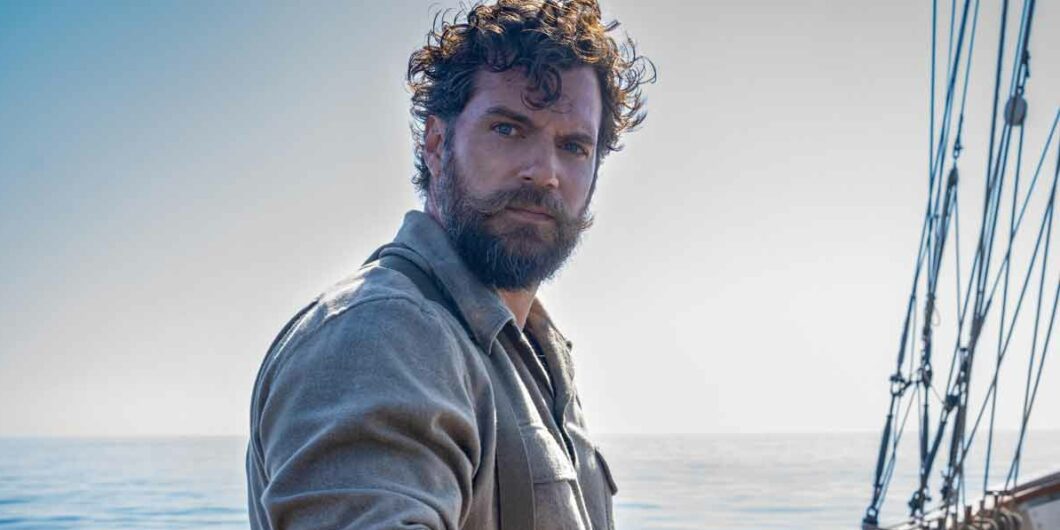Dune: Part Two contains conservative truths about human nature and the fate of political faiths.
England As It Once Was
Most of Guy Ritchie’s movies have been stories of friendship between men, attempts to restore a much-needed confidence in a gender-neutral era. His rock music-video montages, clever dialogue, often in slang, and romantic interest in the criminal underworld have preserved the only remaining area of freedom for men in cinema. His preferred mode is comic, he likes focusing on the strangest thing about men, our tendency to boast and strut. In our times, words like legend and king are thrown around, especially online, but it’s unclear whether this is anything but advertising. We like to tell tall tales.
I cannot think of another director in Hollywood who thinks this way. More, Ritchie has kept it up over 25 years of a career whose highlights were Lock, Stock, and Two Smoking Barrels and Snatch in the ‘90s, his two Sherlock Holmes adaptations in the ‘00s, The Man from U.N.C.L.E. and The Gentlemen and in the ‘10s, and, in this decade, The Ministry of Ungentlemanly Warfare.
Over this period, Ritchie has become respectable rather than cool and even an English patriot rather than a rebellious young man. So it makes sense that he’s moved from English legends like King Arthur to the true story of Churchill’s stand against Hitler, the last thing the English can be proud of, but which isn’t much celebrated these days. Happily for him, there is an aspect of war that lends itself to his preference for capers or heists—special operations.
Operation Postmaster
The Ministry of Ungentlemanly Warfare offers a political explanation early. Churchill needs FDR to enter the war, but that cannot happen if England is believed to be weak, facing defeat. England’s defense is primarily her navy and that is now threatened by German submarine warfare. This is not just a problem of military strategy, but also an outrage against the practices of seafaring nations which Germans had also practiced in the Great War, sinking defenseless ships, civilian ships, merchantmen, and even hospital or humanitarian aid ships.
Moreover, American aid, should it be forthcoming, depends on securing the Atlantic sea lanes. So a commando operation is needed to cripple the Nazi U-boat fleet, whose supplies will be exposed to attack in neutral territory off the coast of West Africa, the island of Fernando Po. The real raid this is based on is Operation Postmaster, as recounted in Damien Lewis’s The Ministry of Ungentlemanly Warfare: How Churchill’s Secret Warriors Set Europe Ablaze and Gave Birth to Modern Black Ops (2014). The operation was carried out by the Small Scale Raiding Force (precursor to the current Special Air Services) and the Special Operations Executive in January 1942. Of course, the movie magnifies the danger and the achievement of a small group of men in an effort to rouse the English to action.
Ritchie’s England is divided between two principles, respectability and daring, which Churchill alone brings together at the very moment of trial. Military command is against the idea of a raid on German and Italian ships in the harbor of Santa Isabel in what was then called Spanish Guinea. It’s risky and it would breach international conventions by taking hostile action in neutral territory. (In reality, the Foreign Office was also against it.) Ritchie’s notion is that officials are arrogant and yet inactive and he shows us repeatedly the intrigue necessary to avoid bureaucratic capture of the commando actions he presents as Churchill’s policy; harder, more decisive men are needed, men who are likelier to disobey orders than to wait around. A taste for drama and excitement is more needful than English calm, an awareness of the urgent trouble and a desire to prove oneself. This generalizes to a vision of what might get England out of its current misery, now that there are no men left to take action.
In Ritchie’s telling, espionage and sabotage—the dark arts of war as a whole—make for riveting action, showing men at their quickest in every sense of that word.
Who then does Churchill call upon, to wage this “ungentlemanly warfare?” Ian Fleming, of course, the military intelligence officer who became the last celebrated poet of the British Empire as author of the James Bond novels. Ritchie is a latter-day Fleming and if the English still had vim, he would get the job to create a new Bond series. Instead, we get glum, miserable stories, increasingly full of woke silliness, written by people who can think of no use for Bond than that he should sacrifice his life. England would have to be erased or destroyed to make way for a new woke future. This is slightly horrifying as an elite ideology and it has also failed as art; so, too, the new Bond novels are unspeakably bad and boring, since they don’t even muster the glamour of the movies. Compared to that, Ritchie’s Bond would be amazing, no doubt played by the former Superman, Henry Cavill, the most charming and manly English actor of this generation, who worked with Ritchie on his reboot of The Man from U.N.C.L.E.
Such stories would recall the English to sense and self-respect and get rid of these foreign elite ideologies, which, as the threat to the English way of life, are the new Nazis. Who, after all, wants to humiliate every symbol of English history today (including recently the Foreign Office itself, for colonialism)? Who wants to suppress every English freedom and arrest people even for speech? Who wants to get rid of men? England now has elites as fastidious as the ones opposing the commandos and threatening to throw Churchill out of office in The Ministry of Ungentlemanly Warfare, but they are much more successful than even the Nazis in establishing despotic rule. At this point, it may only be movies where the old pride of free men can still show itself.
The Rehabilitation of Men
This is the symbolic meaning of assembling a team of commandos not, as happened in reality, out of Englishmen with more dash than society knows what to do with, but out of criminals. Men have to be let out of jail. The leader of the team, played by Cavill, has the Renaissance aristocratic good looks and manly bearing, but also quite a bit of menace in his eyes. A useful reminder that the country is at war, the only time when we can publicly admit we have cowards rather than gentlemen, since the people we call by that name never show manliness, only gentility. Cavill plays Augustus Henry March-Phillips or Gus, for short, a plausible leader even before he shows his strength of will and military prowess, because of his unwillingness to obey. Even his wit shows a certain contempt for the formalities of peace, which preserve people from danger but lead to defeat. But he also shows love of life. He’s, in short, a beautified Churchill.
Gus’s men serve their purposes as they would on a heist—a planner, a sailor, a tough guy, and a sapper, as well as some spies—but they are also an assembly of empire and the team as a whole reconciles the various races and ethnicities, as well as including a woman. Irish, Jews, African, Norseman, they have it all in this team, brought together by their lethality. Is this progressive inclusion and multiculturalism? Or reactionary applause for the empire on which the sun never set? It’s ambiguous. The deeper issue is, what purpose do such people serve, what is politics if they are not only needed, but admirable, and to what extent can their friendly, yet conspiratorial activity be part of ordinary life? The movie sets up a series of stories—will they be made?—in which these men will tackle other threats and thus somehow become a working part of the government, secret but necessary, and an object of pride. If they evoke a strong passion in our hearts, that suggests a way out of the decadence or despair of our times. In returning to the past, Ritchie wants to evoke urgency and fear, offering a renewal of effort based on the thought that there are uglier things than death and, above all, the surrender of freedom. In short, the point driven home by the boastful storytelling is that war is actually choice-worthy and quite beautiful, in contrast with tyranny. In Ritchie’s telling, espionage and sabotage—the dark arts of war as a whole—make for riveting action, showing men at their quickest in every sense of that word; it’s as close as you can get to making intelligence visible.
Glamour conceals the ugliness of fear and death, but it also cannot but show the ambiguous character of beauty. Gus and the team, when they’re not busy killing very unpleasant, cruel Nazis and blowing up their ships, sail the Atlantic in a beautiful, masted trawler. The ocean is deadly enough by itself. The beauty of a ship has something to do with surviving that danger and it would seem that men love boats—and remember the English were once a seafaring people—because they believe they themselves are similar, beautiful inasmuch as they face danger, necessity, and unpredictable chance. That may be all the freedom there is for men. There is more than a little of romanticism in the story.
Ritchie emphasizes this characterization with a score inspired by Ennio Morricone’s music for the Sergio Leone-Clint Eastwood spaghetti Westerns of the ‘60s. Martial rhythms and folk instruments mix and a Spanish formality and bravery come across, ambiguous about every aspect of violence except its inevitability. The Ministry of Ungentlemanly Warfare seems perfect for a series, partly because it rehearses a mid-century genre, the WWII story of daring men and desperate missions, updated for the despair men feel today and intended to mix comic cleverness with a romantic longing for the tragic. I for one hope it succeeds.



